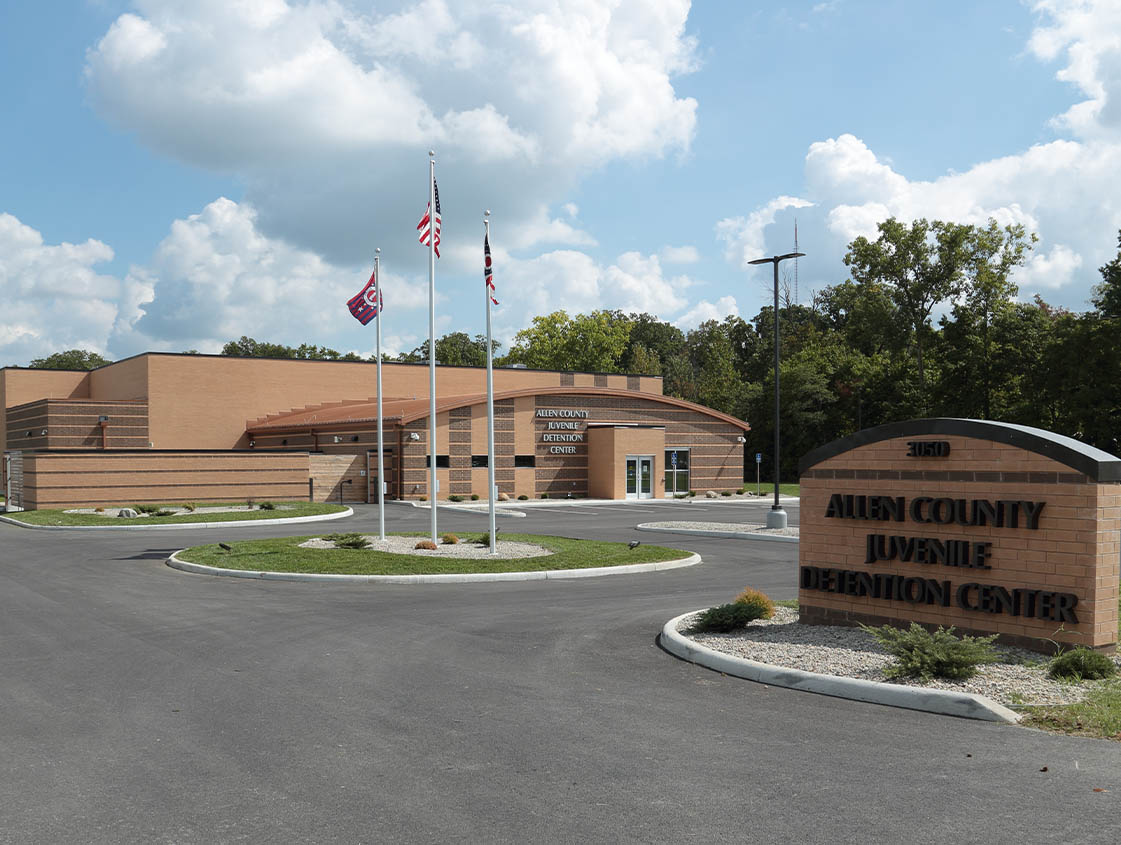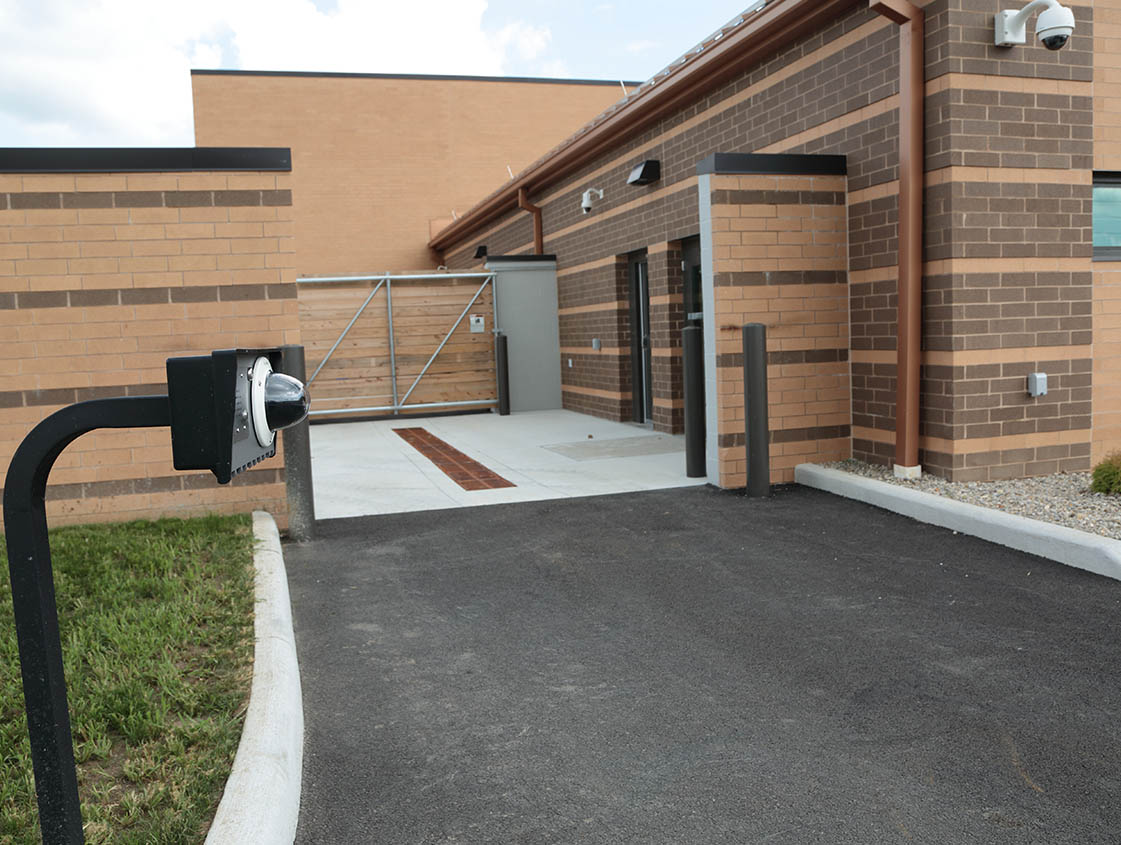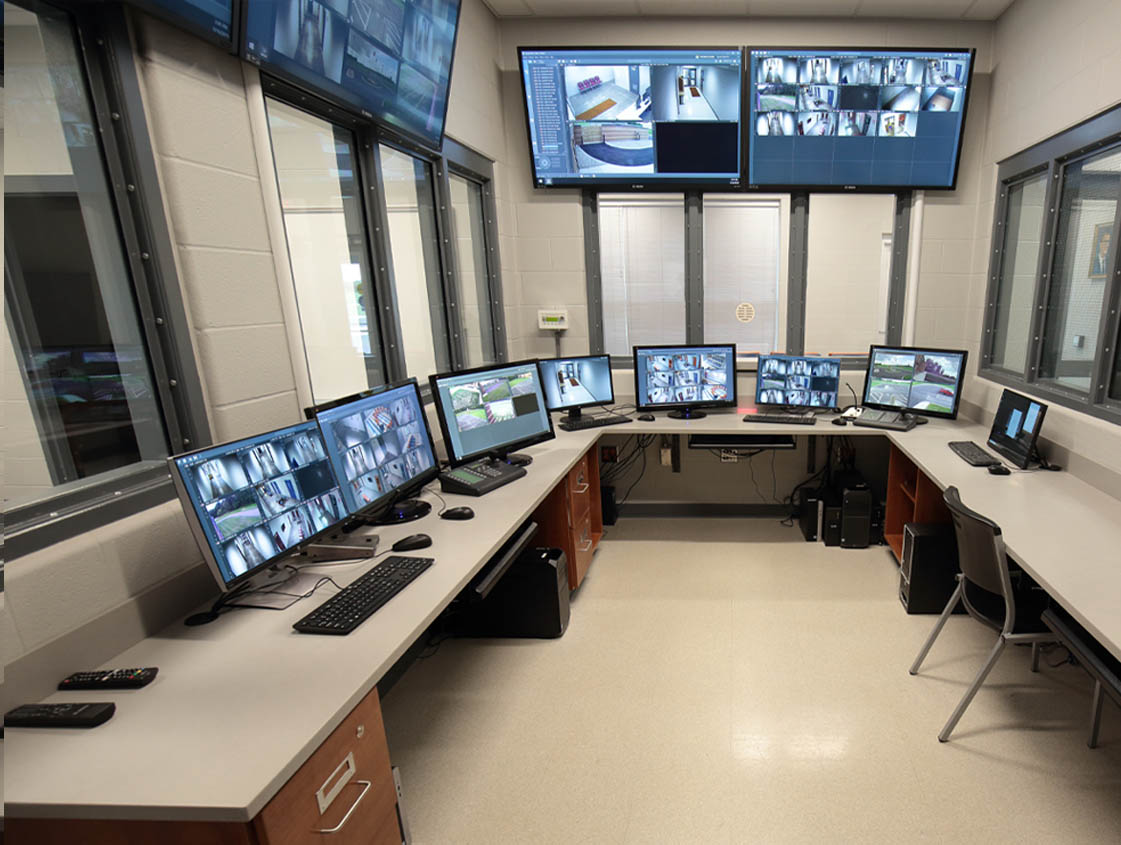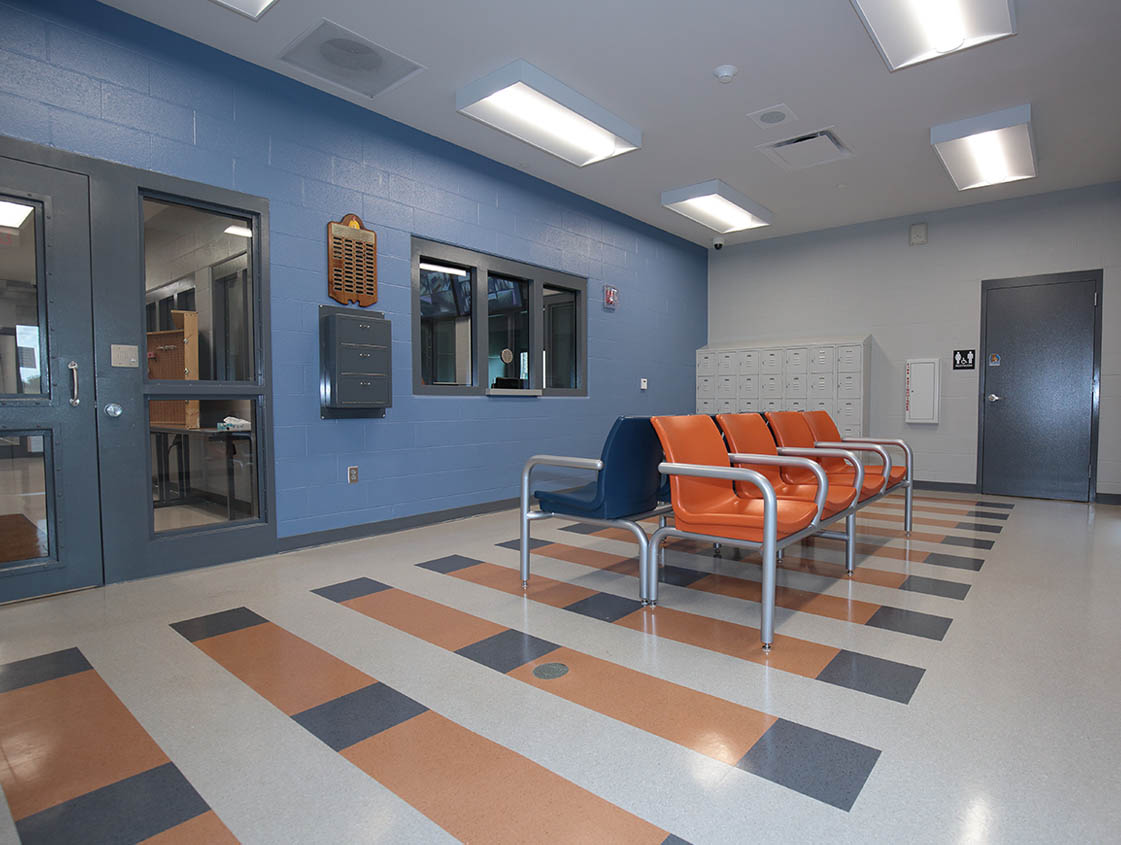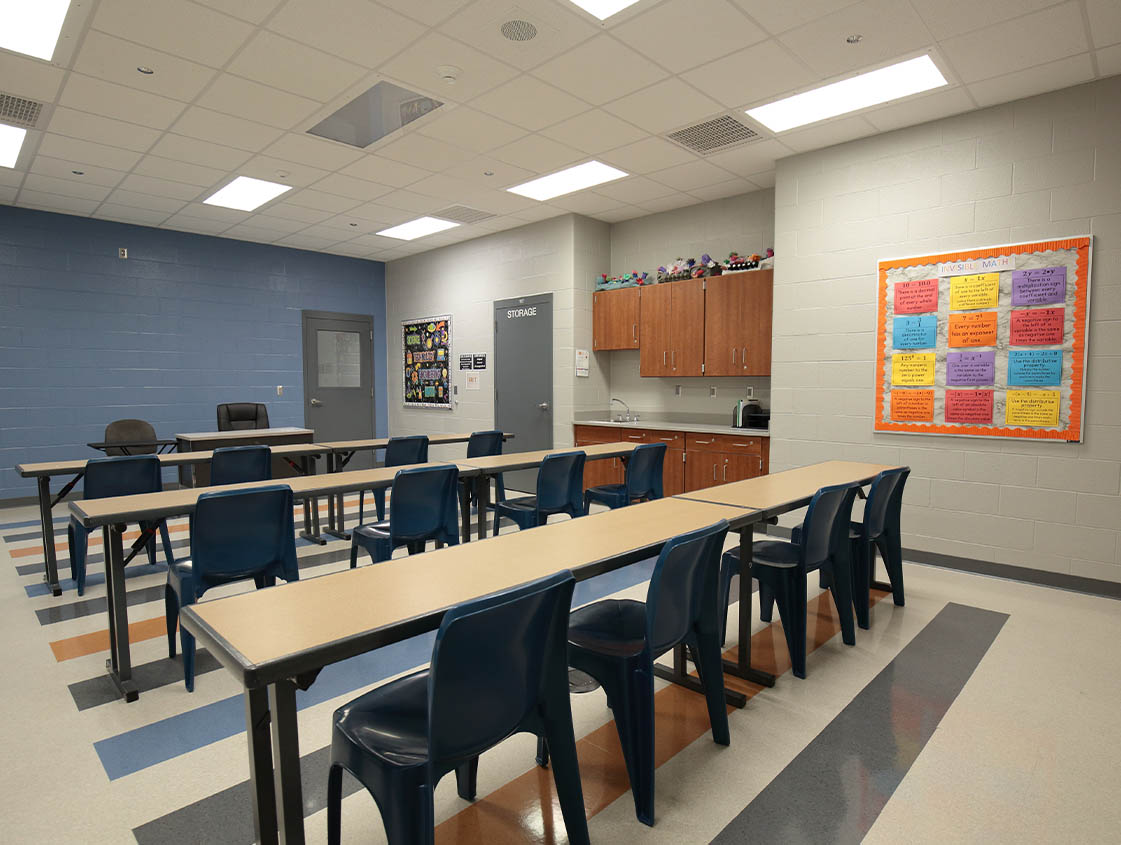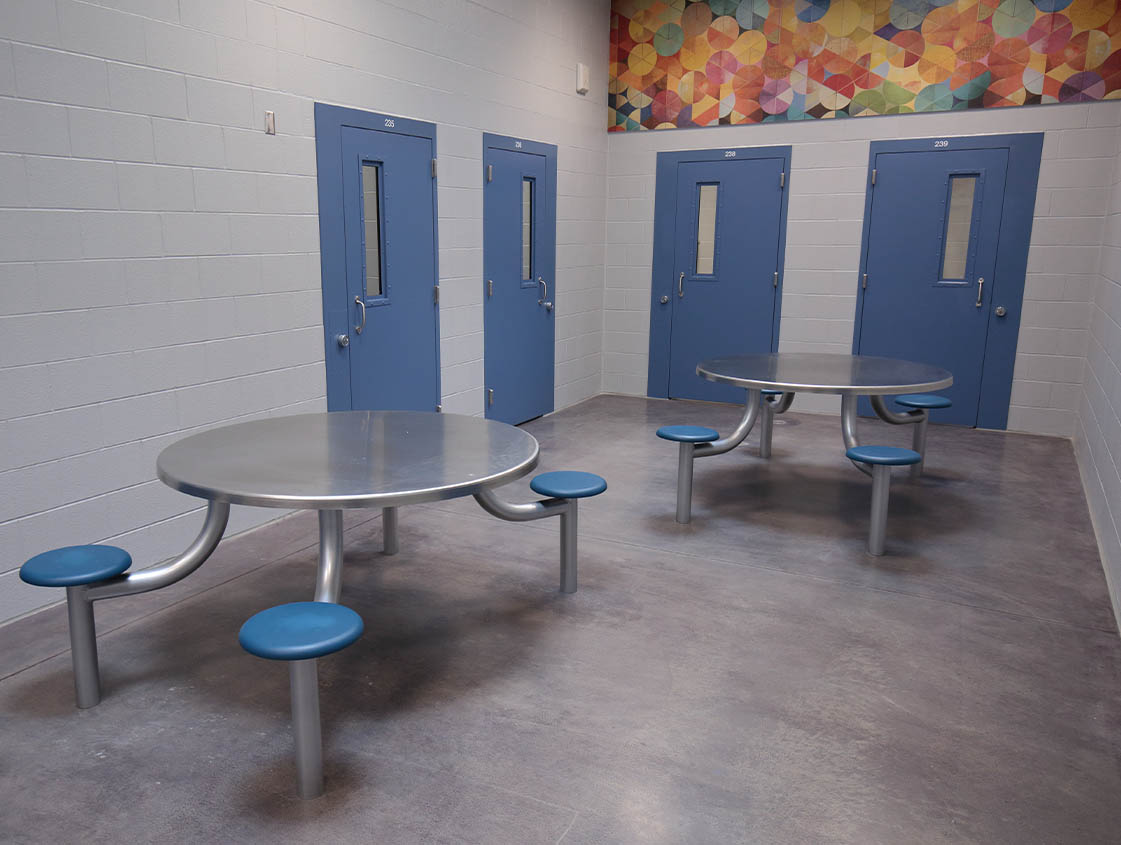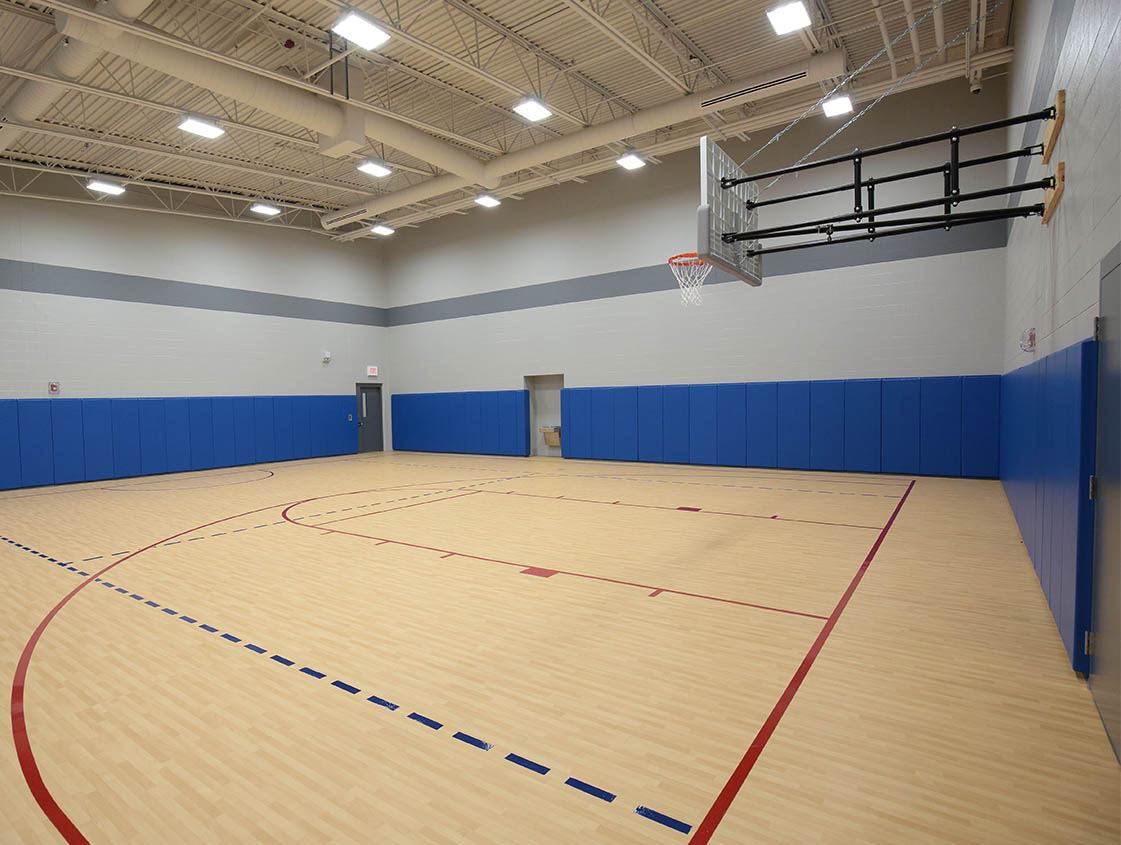Detention Program
(Click the images to enlarge)
General Description
Youth may enter the Detention Program as the result of being arrested and charged with a delinquency (an act that would constitute a criminal offense if committed by an adult), by order of the court, or by their Probation Officer for failing to comply with the terms and conditions of probation. Youth placed in detention prior to adjudication are given a detention hearing within 24 hours (72 on weekends) to determine the need for continued detention pending the next scheduled hearing. The need for continued detention is reviewed at each subsequent hearing through final disposition of the youth’s case. Children may only be held in secured detention in accordance with Ohio’s juvenile rules of arrest and detention, for their own protection from an immediate threat, for the protection of other persons and/or their property, if they are likely to abscond the jurisdiction of the Court, or if there is no parent/guardian/agency that can provide them with adequate control and supervision. Additionally, the Juvenile Court may order a youth into secured detention for a period not to exceed 90 days for the purposes of completing a social history or pre-dispositional report and as a final dispositional order as a consequence for criminal acts or non-compliance with established terms and conditions.
Upon entry into the secured detention facility all youth are administered basic mental and physical health screens to identify needs and ensure their safety while a resident of the Center. Mental health screens are reviewed daily by a qualified mental health provider and follow-up contact is made on an as-needed basis. Physical health screens are reviewed daily by correctional nurses provided by the Allen County Sheriff’s Office. Residents detained at their initial detention hearing are then administered a detailed health screen and physical examination by the nursing staff. All health screens are reviewed by the facility’s medical director (a licensed physician or medical practitioner) on a weekly basis in addition to providing services, examinations, and medical treatment as needed. Residents of the Center can easily identify and define the roles of the facility’s staff members by their appearance and job duties. Operational staff members are uniformed corrections officers trained in tending to the basic needs of the residents with a primary focus on maintaining the safety and security of the facility for the staff, residents, and public. Programmatic staff members are identified by their more casual office attire and are trained to interact with the residents in a therapeutic, instructional, and educational manner with a focus on personal attention and needs.
Daily life in the Detention Program includes a focus on education with residents receiving no less than 5 ½ hours of structured educational activities each day during the school year. Residents of the Detention Program are also afforded individual and group intervention opportunities as well as other activities including arts and crafts, computer classes, organized recreational programs, leisure time, and guest speakers. The opportunity for visitation with a parent and/or legal guardian is provided daily through the scheduling of individual appointments. Special visitations are sometimes authorized for other interested parties such as grandparents, mentors, athletic coaches, and school personnel. Residents of the Detention Program are permitted unlimited visitation with their attorneys and/or guardian-ad-litem. Non-denominational church services are provided on a weekly basis with participation being voluntary. The opportunities for additional faith-based services are provided throughout the week by area chapters of Teens-For-Christ and other faith based programs/providers, also with participation being voluntary.
The Detention Program’s primary objective is to provide a humane environment for youth that is safe, secure, and structured, in a way that meets their daily needs and encourages them by example to make positive changes in their lives. Center staff are trained in a wide variety of interventions and modalities such as the rights and responsibilities of juveniles, the prison rape elimination act, juvenile justice rules & procedures, Crisis Intervention Techniques, non-violent physical restraint, verbal de-escalation, managing youth resistance, response to resistance, unarmed self-defense, emergency medical procedures, child growth development, cultural awareness, and other operational/programmatic procedures.

